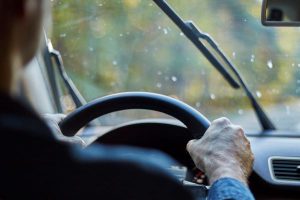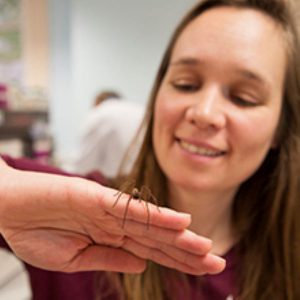
November 4, 2019, by Liz Goodwin
University News Review — September 2019
Welcome to the September 2019 News Review which features some of our top news stories from the month…
See bike, say bike!
 The story that drivers are five times more likely to forget seeing an oncoming motorcycle than a car, appeared in the news headlines in September.
The story that drivers are five times more likely to forget seeing an oncoming motorcycle than a car, appeared in the news headlines in September.
Fatal crashes involving cars and motorbikes may be caused by glitches in drivers’ short-term memory, according to a new study by psychologists at the University of Nottingham. There are an estimated 90 fatalities a year in the UK caused by drivers pulling out into the path of an oncoming motorcycle.
The Daily Telegraph and the Mail Online featured the story which was promoted by Jane Icke, Media Relations Manager for the Faculty of Science, while ITV News Central’s Peter Bearne visited the School of Psychology’s high-fidelity driving simulator.
Researchers say these accidents could be prevented by motorists talking to themselves at the wheel. They suggest teaching drivers that if they see a motorcycle approaching, they should say so out loud — ‘See Bike, Say Bike.’
The research was funded by the ESRC and carried out by PhD student Chloe Robbins supervised by Dr Peter Chapman an expert in the psychology of driving.
Dr Chapman said: “These studies compellingly demonstrate that even in safety-critical situations it is possible to observe dramatic failures of visual memory. These ‘Saw but Forgot’ errors were remarkably frequent in the simulator and we have every reason to think that they may be equally prevalent in the real world. The surprising lack of memory may be exactly why these crashes appear so mysterious.”
The Department of Transport has said it is excited by the University’s research. It could be that ‘See Bike, Say Bike’ is the message of a future road safety campaign.
Cute rabbit survey uncovers most popular bunny face
 Experts have found the cutest looking rabbit face using a survey which was created to help them understand why people choose certain breeds of bunny.
Experts have found the cutest looking rabbit face using a survey which was created to help them understand why people choose certain breeds of bunny.
BBC News Online reported on the recent results of the research — dubbed ‘bunny Tinder’ — which was done because rabbits with very flat faces are prone to health problems associated with intensive breeding of popular rabbits.
Using the Rabbit Face Survey, which was launched last year and led by zoologist and animal welfare expert Dr Naomi Harvey, it was hoped the results will be used to help guide the choice of potential rabbit owners.
Charlotte Anscombe, Media Relations Manager for the Faculty of Medicine and Health Sciences, worked with Dr Harvey to reveal the recent survey results to the media. The survey had an unprecedented level of interest, with over 20,000 people completing it from around the world.
The findings, published in the journal Animals, which will be used to inform safer breeding methods, also revealed that mildly-flat-faced rabbits are the most preferred globally to any other kind, and the longest faced rabbits are the least preferred.
Dr Harvey said: “The insights from the survey will prove useful for the development of education campaigns to raise awareness of conformation associated health issues in addition to providing insight into the impact appearance may have on rabbit purchasing behaviour.”
Virtual reality training could improve employee safety
 A new study by scientists at the University suggests employee safety could be improved through the use of Virtual Reality (VR) in Health and Safety training, such as fire evacuation drills.
A new study by scientists at the University suggests employee safety could be improved through the use of Virtual Reality (VR) in Health and Safety training, such as fire evacuation drills.
ITV News, BBC Radio Nottingham and Science Daily, reported on the story which revealed that the technology — which recreates the sensation of heat and smoke — allows employers to teach staff without any risk.
Media Relations Manager for the Faculty of Engineering Katie Andrews, worked with researcher Dr Glyn Lawson in the Human Factors Research Group, to bring the research (funded by the Institute of Occupational Safety and Health) to the media’s attention. Dr Lawson told ITV News: “When we looked at using this tool to predict what people would do in an emergency, we found that the addition of the multi-sensory element — the heat and smoke — led people to behave in a way that was closer to what we would expect in real life.”
Previous research on human behaviour during real-world fire incidents has shown that a lack of understanding of the spread and movement of fire often means that occupants are unprepared and misjudge appropriate actions. Immersive health and safety training enables employers to train people about hazards and hazardous environments without putting anyone at risk.
Newson children: where are they now?
 Psychologists from the University of Nottingham are appealing for people to come forward who may have taken part in pioneering research into child development from the 1950s to the 1970s.
Psychologists from the University of Nottingham are appealing for people to come forward who may have taken part in pioneering research into child development from the 1950s to the 1970s.
ITV News Online reported on a new project called ‘Growing Up in Nottingham — Then and Now,’ where experts from the School of Psychology are trying to trace children who were born in Nottingham between July 1957 and August 1961, or their parents, who may have taken part in interviews about domestic life in inner city Nottingham and attitudes to child-rearing.
In 1958, Professors John and Elizabeth Newson set about collecting data on 700 children born across the city. They gathered vast quantities of information on child-rearing practices and explored emotional and social aspects of the children’s lives as they developed.
Emma Rayner, Media Relations Manager for the Faculty of Arts, spoke to two University of Nottingham academics who were themselves taught by the Newsons and are now trying to trace the ‘Newson children’ — who will now be in their early 60s — to find out what happened to them.
 Dr Claire Lawrence and Dr Eamonn Ferguson would like to bring some of the families together for a special event at Broadway Cinema in Nottingham on 2nd November 2019.
Dr Claire Lawrence and Dr Eamonn Ferguson would like to bring some of the families together for a special event at Broadway Cinema in Nottingham on 2nd November 2019.
Dr Ferguson said: “The Newsons’ work was, and still is revolutionary, examining in depth how children growing up, sometimes in quite difficult conditions, developed intellectually and emotionally. They provided unique insights that still have a real contemporary relevance given the high levels of childhood poverty today.”
How are drones shaping the future of war?
 Drones are changing the way militaries around the world conduct their operations. Some militaries prefer drones to sending in jets or using other weapons. And now, with the crisis in the Gulf, the UK is reportedly considering using them in the region.
Drones are changing the way militaries around the world conduct their operations. Some militaries prefer drones to sending in jets or using other weapons. And now, with the crisis in the Gulf, the UK is reportedly considering using them in the region.
Media Relations Manager for the Faculty of Social Sciences Nasreen Suleman arranged for the University’s conflict and terrorism expert Dr Afzal Ashraf to talk to Al Jazeera. Dr Ashraf appeared on Inside Story to debate how these unmanned aircraft will shape future conflicts.
Dr Ashraf then went on to appear on Al Jazeera Newshour later in the month to discuss drone attacks on two Saudi Aramco oil facilities by Yemen’s Houthi rebels. He talked about the Houthi’s drone capability and the explosive yield of this technology.
“You don’t need a very high explosive yield in an oil refinery. Provided you attack a very small facility, or a very large tank with a very small explosive, then you will get that effect. With reports of up to 20 drones, they may only have hit one or two containers. You only need one to catch to get that sort of explosion.”
And finally… spider season
 September marks the start of spider season, and this year’s record temperatures, interspersed with heavy rain has yielded a ‘lush, green’ environment ideal for the smaller insects that spiders eat. Which has meant abundant numbers of well-fed spiders have been roaming people’s homes.
September marks the start of spider season, and this year’s record temperatures, interspersed with heavy rain has yielded a ‘lush, green’ environment ideal for the smaller insects that spiders eat. Which has meant abundant numbers of well-fed spiders have been roaming people’s homes.
University of Nottingham arachnologist Dr Sara Goodacre joins BBC News 24 Breakfast to allay some of our fears.
She explains that they are not really trying to come in at this time of year, but agrees that they are bigger now, because they are reaching the end of their life cycle and they are going to lay eggs. She says that they are amazing creatures as they eat many pests, and stresses that in this country spiders are not dangerous. She says the real fear is that people are frightened of them, and then we act irrationally and disproportionately.
Dr Goodacre, who founded the University’s SpiderLab, also told the Daily Telegraph and Express Online that spider season should be celebrated. “Try not to spray insecticides and things you don’t need to spray,” she said. “Think of this as a food resource for birds in your garden.”
No comments yet, fill out a comment to be the first

Leave a Reply